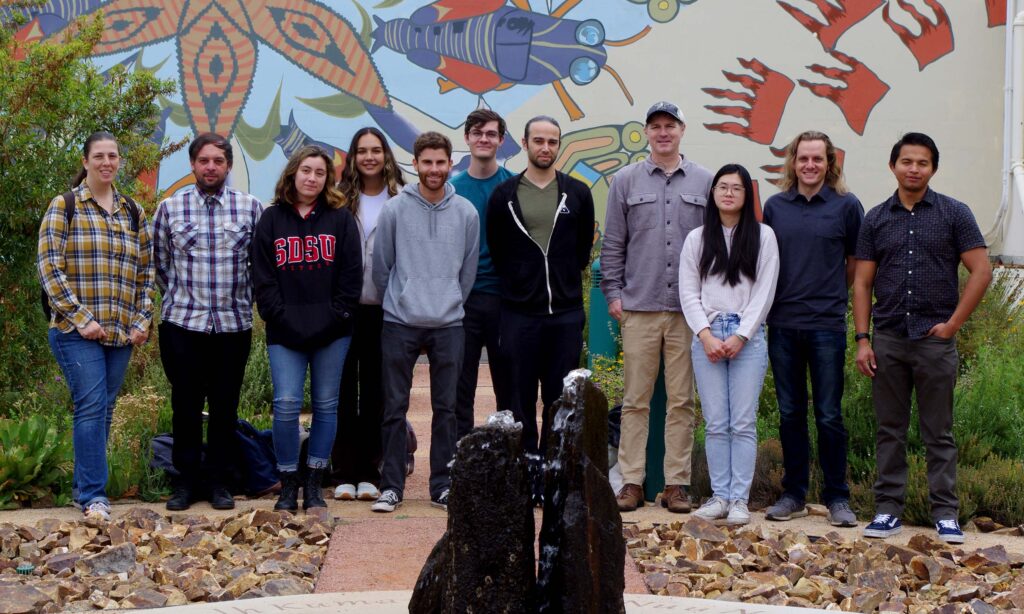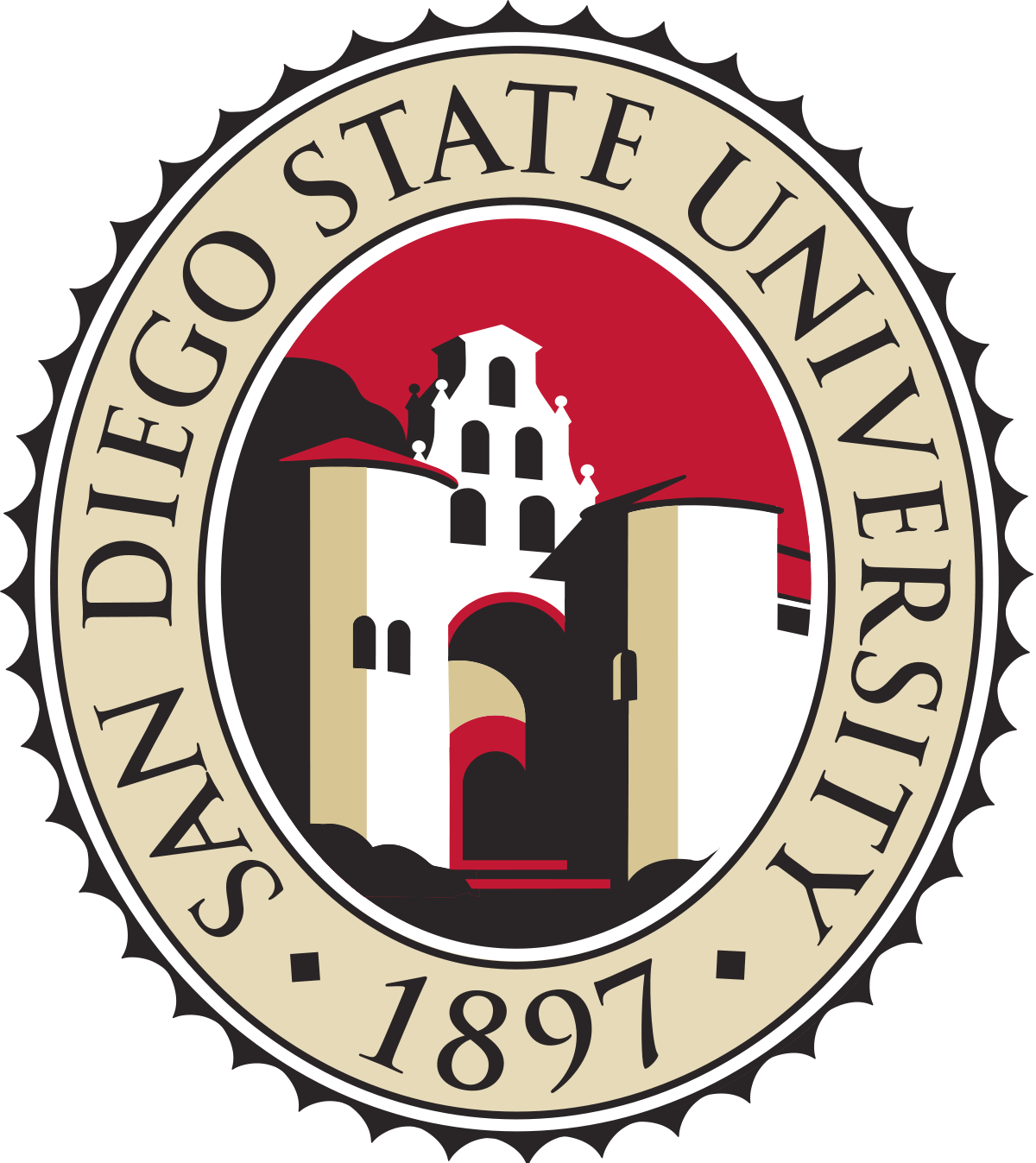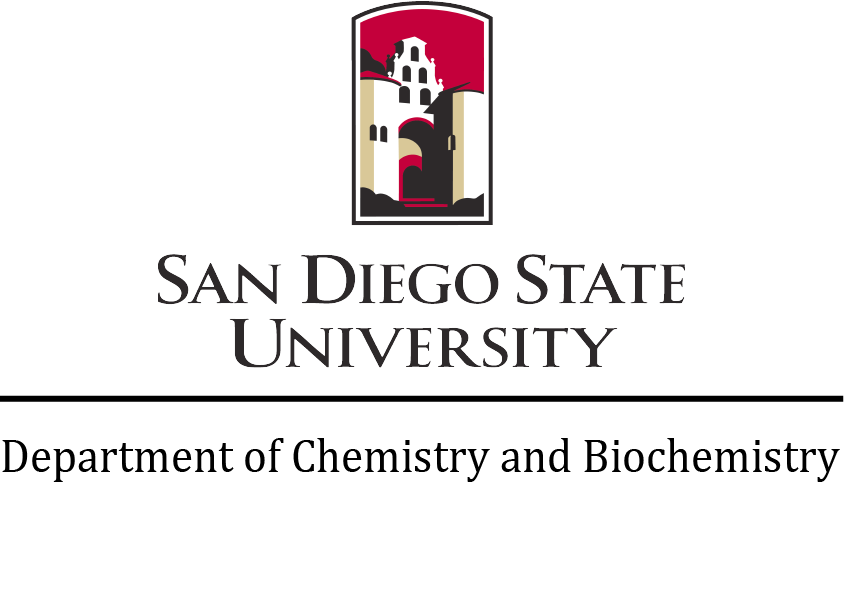It is a pleasure to announce that Ana Kutchuashvili has been named the 2025 Alison Huxford Memorial Fellowship for Graduate Student Research in Biochemistry. Established in honor of Dr. Tom Huxford’s sister, who passed away in June of 2019, this fellowship provides a cash award to help support graduate students working toward their doctorate in the field of biochemistry at San Diego State University. Due to the generosity of well over 200 different donors, the majority of whom are former SDSU students, in May of 2025, Ana was selected as the fifth recipient of this annual award.
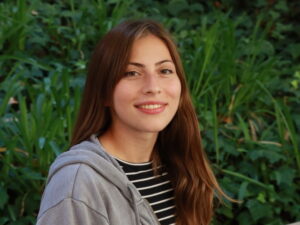
Ana Kutchuashvili , 2025 Alison Huxford Memorial Fellow
About the Fellow: Ana Kutchuashvili is a graduate of San Diego State University Georgia. She joined the SDSU Chemistry & Biochemistry program in 2020 as a master’s student and was admitted to the Ph.D. program in 2021. The main objective of Ana’s Ph.D. project is the structural characterization of the N6-threonylcarbamoyladenosine (t6A) biosynthesis system in bacteria. t6A is a universally conserved modification in transfer RNAs that plays a key role in the accurate decoding of genes. The t6A biosynthesis pathway consists of two steps: 1. Formation of the pathway intermediate threonylcarbamoyl adenylate (TC-AMP) by the TsaC/TsaC2 enzyme; 2. Transfer of the threonylcarbamoyl motif onto tRNA by the TC-transfer (TCT) complex. Ana has investigated both steps of the biosynthesis using X-ray crystallography and cryo-electron microscopy. First, she obtained crystal structures of TsaC2 bound to its substrates, product, and the intermediate, providing the first direct evidence of the intermediate formed in the reaction. Subsequently, she determined a cryo-EM structure of the TCT complex bound to its substrate tRNA, which elucidates the mode of tRNA binding and its recognition mechanism.
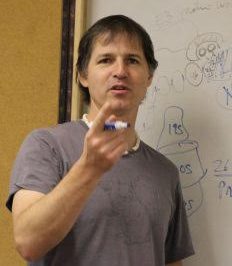
Professor Tom Huxford
About the award: Tom Huxford is a Professor in the Department of Chemistry & Biochemistry at San Diego State University. During the last sixteen years, Dr. Huxford has worked with literally thousands of SDSU undergraduate and graduate students through his courses, including Introduction to General Chemistry (Chem 100), Biochemistry, Cell & Molecular Biology I (Chem 365), General Biochemistry (Chem 560), and Intermediary Metabolism (Chem 562). The success and popularity of these courses stem directly from his involvement as an active research scientist and Principal Investigator of the Structural Biochemistry Laboratory.
One of the greatest challenges in leading a research laboratory is sustaining funding, and acquiring funds to augment the stipends of Ph.D. candidate graduate students is particularly difficult.
This issue was on Dr. Huxford’s mind when, in June 2019, he suffered the loss of his sister Alison. Alison Huxford was a great sister, a happy person, and a beloved friend to everyone she met. Although she never had the chance to study at a university, she was extremely proud of her younger brother and bragged about him all the time.

Alison and Tom Huxford, Fall 1975
In her honor, Dr. Huxford began working toward establishing an endowment to fund a graduate student biochemistry research at SDSU in perpetuity, to be known as the Alison Huxford Memorial Fellowship for Graduate Student Research in Biochemistry. The response thus far has been outstanding and in Spring of 2021 Dr. Huxford decided to begin making what is planned to be an annual award of $2,500 to one SDSU biochemistry graduate student Fellow.
We still have a lot of fundraising to do to reach the goal of establishing an endowment that will continuously fund the Fellowship program in perpetuity. If you or someone you know is a former student in one of Dr. Huxford’s courses or if you spent time as a research assistant in the lab or benefited in general from the enthusiasm Dr. Huxford has for biochemistry, then now is your opportunity to help him out. Please consider making a generous donation to the Alison Huxford Memorial Fellowship for Graduate Student Research in Biochemistry. A link to the web page where you can make a donation through SDSU is here. Dr. Huxford and future generations of SDSU student researchers thank you sincerely for your kindness.
